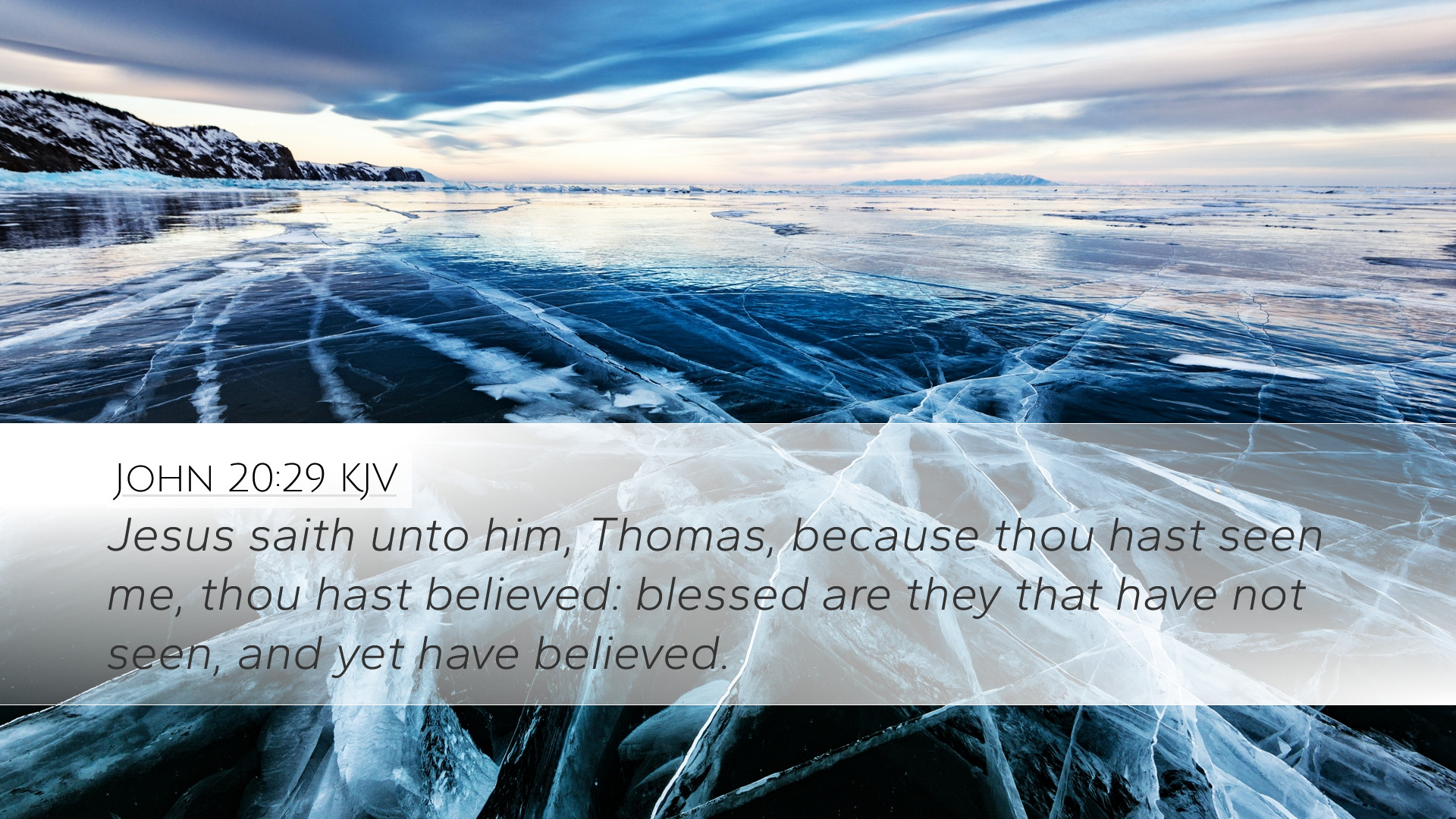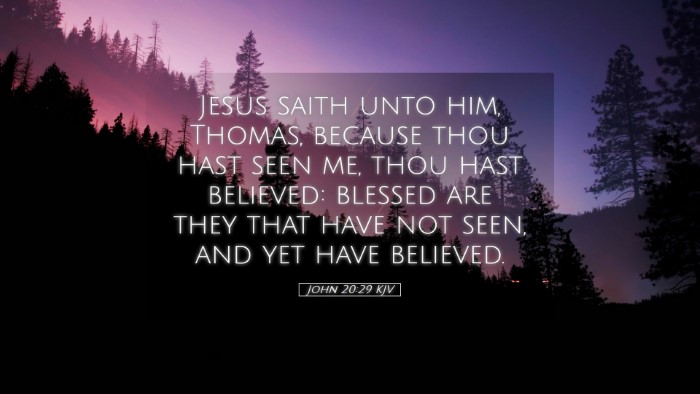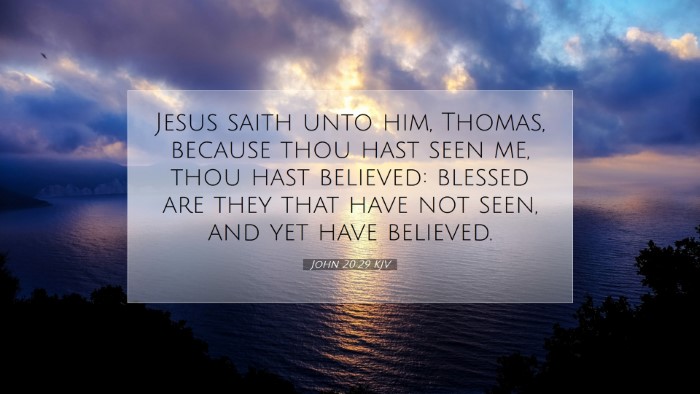Old Testament
Genesis Exodus Leviticus Numbers Deuteronomy Joshua Judges Ruth 1 Samuel 2 Samuel 1 Kings 2 Kings 1 Chronicles 2 Chronicles Ezra Nehemiah Esther Job Psalms Proverbs Ecclesiastes Song of Solomon Isaiah Jeremiah Lamentations Ezekiel Daniel Hosea Joel Amos Obadiah Jonah Micah Nahum Habakkuk Zephaniah Haggai Zechariah MalachiVerse
John 20:1 John 20:2 John 20:3 John 20:4 John 20:5 John 20:6 John 20:7 John 20:8 John 20:9 John 20:10 John 20:11 John 20:12 John 20:13 John 20:14 John 20:15 John 20:16 John 20:17 John 20:18 John 20:19 John 20:20 John 20:21 John 20:22 John 20:23 John 20:24 John 20:25 John 20:26 John 20:27 John 20:28 John 20:29 John 20:30 John 20:31

